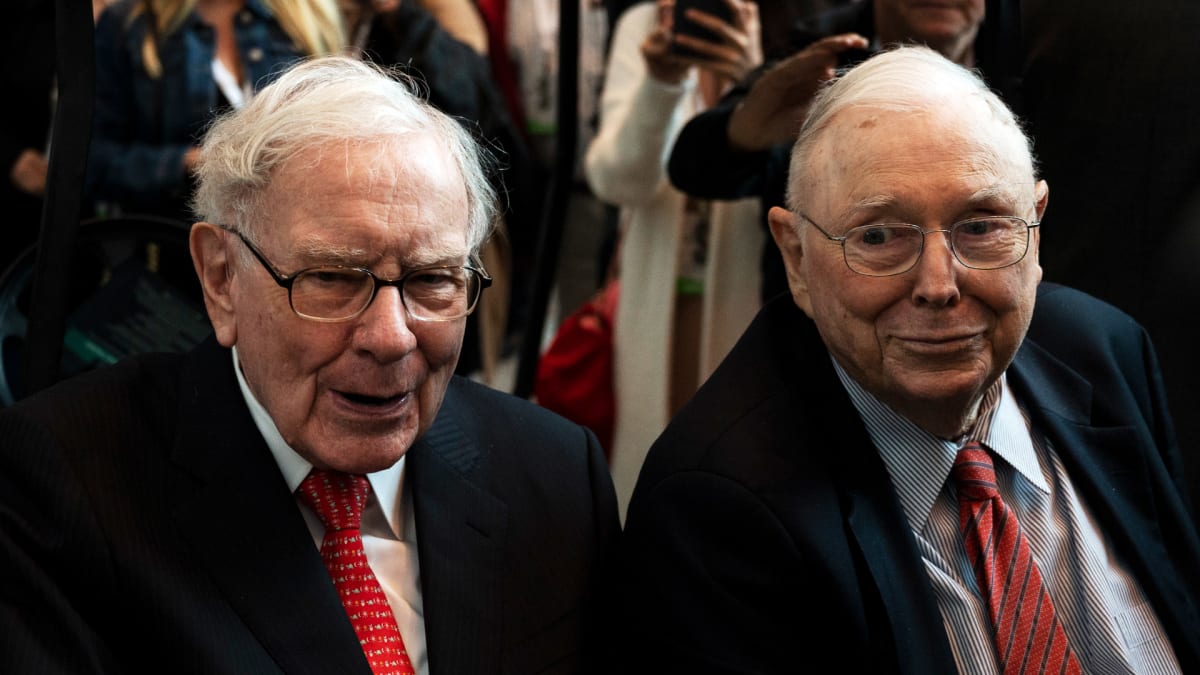
The commercial property loans held by US banks are problematic since many of them would be deemed as "bad loans" since property values have declined, said Charlie Munger, vice chairman of Berkshire Hathaway.
Banks in the U.S. are “full of” real estate loans that he considers "bad loans," he told the Financial Times.
DON'T MISS: Billionaire Charlie Munger Delivers Very Bad Crypto News
The banking system in the US has faced turbulence recently with the closures and bailouts of Silicon Valley Bank in California and Signature Bank in New York and the near collapse of First Republic Bank in California as it faces a crisis of confidence.
Munger, 99, who has worked alongside Warren Buffett, the CEO of Berkshire (BRK.A), for many decades, said banks will encounter challenges with their commercial real estate portfolios with the decline of property values office vacancies have risen in many cities and interest rates increased.
But the roadblocks that banks could run into will be more mild compared to the Great Recession that occurred during 2007 to 2008.
“It’s not nearly as bad as it was in 2008,” Munger told the FT during a recent interview at his home in Los Angeles.
“But trouble happens to banking just like trouble happens everywhere else," he said. "In the good times you get into bad habits . . . When bad times come they lose too much.”
Berkshire Invests in Banks
Buffett and his conglomerate have long been fans of bank stocks and supported them during previous financial problems, including investing $5 billion into Goldman Sachs (GS) during the financial crisis. In 2011, Berkshire made a $5 billion bet into Bank of America (BAC).
While Buffett and Munger have invested in banks for several decades, the company has stuck with large banks like Wells Fargo and avoided investing in smaller ones.
“Berkshire has made some bank investments that worked out very well for us,” Munger said. “We’ve had some disappointment in banks, too. It’s not that damned easy to run a bank intelligently, there are a lot of temptations to do the wrong thing.”
While Berkshire has been a longtime investor in insurance companies, neither Munger nor Buffett like the volatility that stems from loans in commercial real estate. The decline in property values may not see a turnaround soon, especially in office buildings as well as shopping centers as portions of the workforce continue to work remotely.
“A lot of real estate isn’t so good any more,” he said. “We have a lot of troubled office buildings, a lot of troubled shopping centers, a lot of troubled other properties. There’s a lot of agony out there.”
Some banks had already started lowering their risk by approving fewer commercial real estate loans that developers sought.
“Every bank in the country is way tighter on real estate loans today than they were six months ago,” Munger said. “They all seem [to be] too much trouble.”
Since 1965, Berkshire produced compounded annual returns of almost 20%,which is twice the rate generated by the S&P 500.
Munger credits part of their success to their timing and some good luck.
“We were a creature of a particular time and a perfect set of opportunities,” he said Munger.
The two investors also had several advantages, including “by and large [from] low interest rates, low equity values, ample opportunities,” he said.
Munger's net worth is valued at $2.4 billion by Forbes and is diversified. In addition to his shares in Berkshire, he has invested in Costco (COST), the warehouse retailer, plus Munger allocated money into a fund managed by Li Lu’s Himalaya Capital. He also invested money into Afton Properties, a real estate company that venture that owns apartments in New Jersey and California.
His wealth is the result of investing in companies at a discount.
“It’s the nature of things that a very intelligent man working hard maybe gets three, four, five really good long-term opportunities of buying great companies at a cheap price,” Munger said. “It happens rarely.”
Investors are eagerly awaiting Berkshire's annual meeting in Omaha on May 6 when Munger and Buffett will discuss their investment strategies and take questions from their shareholders.
Expect Lower Returns, Munger Says
Investors need to be prepared for a pullback in the market and expect lower returns from their shares of companies, Munger said.
“It’s gotten very tough to have anything like the returns that were obtained in the past,” he said. “[At] the exact time that the game is getting tougher we’ve got more and more people trying to play it.”







